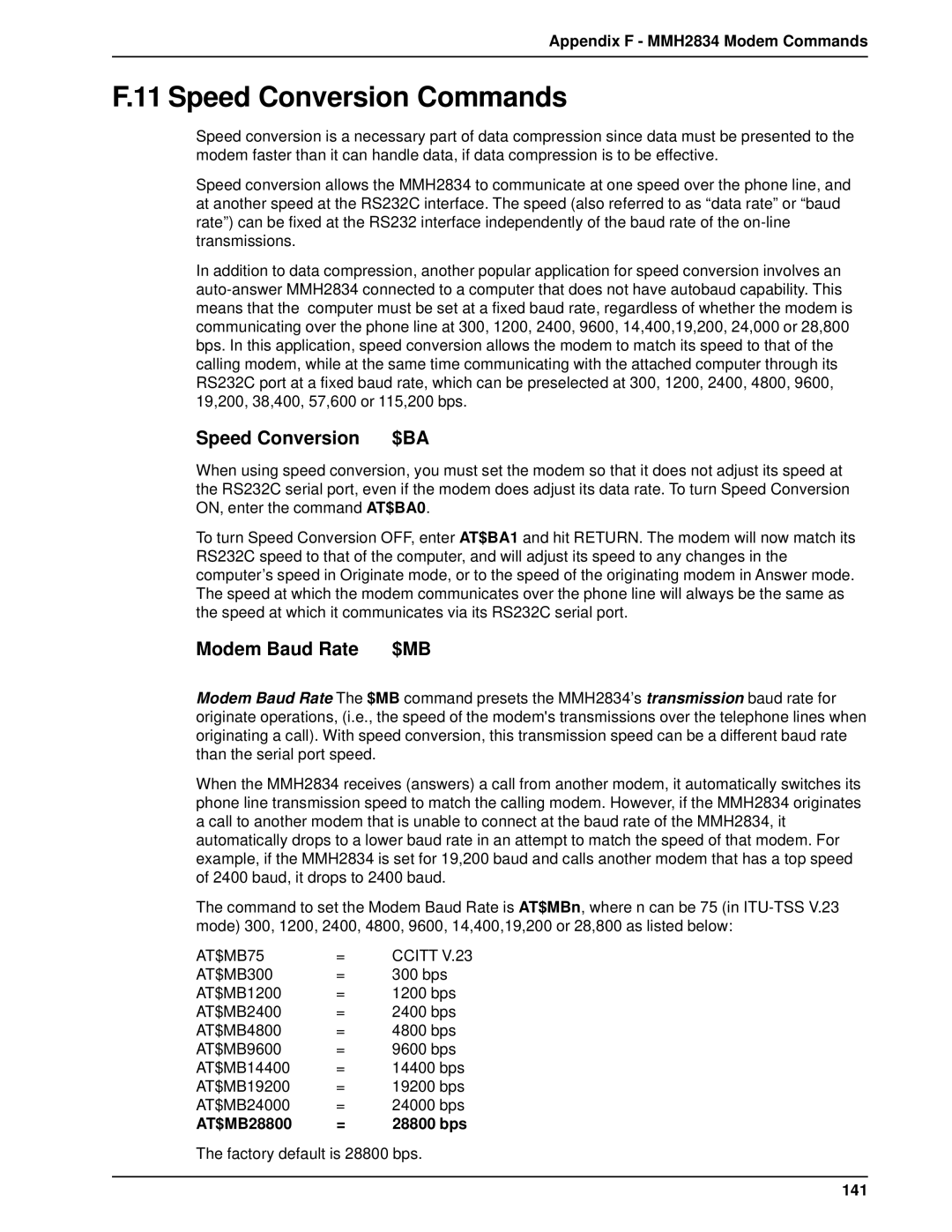
Appendix F - MMH2834 Modem Commands
F.11 Speed Conversion Commands
Speed conversion is a necessary part of data compression since data must be presented to the modem faster than it can handle data, if data compression is to be effective.
Speed conversion allows the MMH2834 to communicate at one speed over the phone line, and at another speed at the RS232C interface. The speed (also referred to as “data rate” or “baud rate”) can be fixed at the RS232 interface independently of the baud rate of the
In addition to data compression, another popular application for speed conversion involves an
Speed Conversion $BA
When using speed conversion, you must set the modem so that it does not adjust its speed at the RS232C serial port, even if the modem does adjust its data rate. To turn Speed Conversion ON, enter the command AT$BA0.
To turn Speed Conversion OFF, enter AT$BA1 and hit RETURN. The modem will now match its RS232C speed to that of the computer, and will adjust its speed to any changes in the computer’s speed in Originate mode, or to the speed of the originating modem in Answer mode. The speed at which the modem communicates over the phone line will always be the same as the speed at which it communicates via its RS232C serial port.
Modem Baud Rate $MB
Modem Baud Rate The $MB command presets the MMH2834’s transmission baud rate for originate operations, (i.e., the speed of the modem's transmissions over the telephone lines when originating a call). With speed conversion, this transmission speed can be a different baud rate than the serial port speed.
When the MMH2834 receives (answers) a call from another modem, it automatically switches its phone line transmission speed to match the calling modem. However, if the MMH2834 originates a call to another modem that is unable to connect at the baud rate of the MMH2834, it automatically drops to a lower baud rate in an attempt to match the speed of that modem. For example, if the MMH2834 is set for 19,200 baud and calls another modem that has a top speed of 2400 baud, it drops to 2400 baud.
The command to set the Modem Baud Rate is AT$MBn, where n can be 75 (in
AT$MB75
AT$MB300 AT$MB1200 AT$MB2400 AT$MB4800 AT$MB9600 AT$MB14400 AT$MB19200 AT$MB24000
AT$MB28800
=CCITT V.23
=300 bps
=1200 bps
=2400 bps
=4800 bps
=9600 bps
=14400 bps
=19200 bps
=24000 bps
=28800 bps
The factory default is 28800 bps.
141
